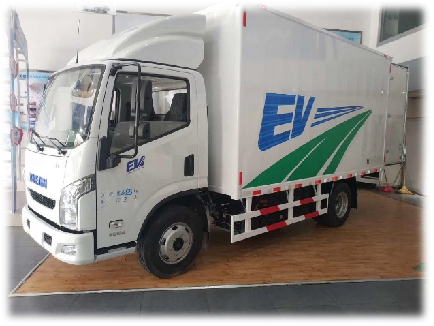| Availability: | |
|---|---|
| Quantity: | |
YS-11
Trumony Technology
Hydrogen Fuel Cell Stack
1. Descriptions
The fuel cell stack is the key components of hydrogen fuel cell system. As a clean and high-efficiency secondary energy, hydrogen energy is valued by many countries. The fuel is hydrogen and oxygen, and the reactant is clean water. During its operation, it does not produce carbon monoxide, carbon dioxide, sulfur and particulates.
2. Specifications
Technical advantages
Hydrogen consumption | ≤ 0.73m3/kw |
The maximum power of a single stack | 150KW |
Volume power rati | 4.2kw/L |
Starting time | 2min |
Practical cases | Run on Anyang logistics vehicle for 200000 kilometers |
Output power: 30KW-150KW
| Product | YS II-60kw | YS II-120kw | YS II-150kw |
Number of stacks | 200 | 400 | 500 |
Volume power density | 4.2 | 4.2 | 4.2 |
Output voltage | 180 | 280 | 360 |
Stack efficienc | ≧48% | ≧48% | ≧48 |
Coolant | 50% deionized water + 50% ethylene glycol | ||

3. Applications
Hydrogen fuel cells have a wide range of applications, can be used for island power generation, on-board stacks, operating vehicles, trucks, etc..

4. Core technology
1. Membrane electrode
1. Material advantage: A series of catalyst materials with low platinum, high performance and long service life.
2. Application: Fuel cell vehicle and standby power supply.
3. Membrane electrode technology launching: Cooperate with Shaanxi coal and Chemical Technology Research Institute.
5. Advantages
1. High efficiency
The power generation efficiency of fuel cells can reach more than 50%, which is determined by the conversion properties of fuel cells, It’s directly convert chemical energy into electrical energy without the need for intermediate conversion of thermal energy and mechanical energy (generator).
2. Environmentally friendly
Due to the high energy conversion efficiency of the fuel cell, its carbon dioxide emissions are reduced by more than 40% compared to the heat engine process. The hydrogen fuel cell uses pure hydrogen as fuel, and its chemical reaction product is only water, which does not pollute the environment.
3. Simple structure, high reliability
Hydrogen fuel cell is different from battery, the power and capacity of fuel cells can be easily adjusted. It can provide a higher energy density, and can regenerate electricity by supplementing with hydrogen, without the need for a long time charging process for ordinary batteries.
4. No noise
The fuel cell runs quietly, and the noise is only about 55dB, which is equivalent to the level of people's normal conversation. This makes the fuel cell suitable for indoor installation, or in places where noise is restricted outdoors.
Hydrogen Fuel Cell Stack
1. Descriptions
The fuel cell stack is the key components of hydrogen fuel cell system. As a clean and high-efficiency secondary energy, hydrogen energy is valued by many countries. The fuel is hydrogen and oxygen, and the reactant is clean water. During its operation, it does not produce carbon monoxide, carbon dioxide, sulfur and particulates.
2. Specifications
Technical advantages
Hydrogen consumption | ≤ 0.73m3/kw |
The maximum power of a single stack | 150KW |
Volume power rati | 4.2kw/L |
Starting time | 2min |
Practical cases | Run on Anyang logistics vehicle for 200000 kilometers |
Output power: 30KW-150KW
| Product | YS II-60kw | YS II-120kw | YS II-150kw |
Number of stacks | 200 | 400 | 500 |
Volume power density | 4.2 | 4.2 | 4.2 |
Output voltage | 180 | 280 | 360 |
Stack efficienc | ≧48% | ≧48% | ≧48 |
Coolant | 50% deionized water + 50% ethylene glycol | ||

3. Applications
Hydrogen fuel cells have a wide range of applications, can be used for island power generation, on-board stacks, operating vehicles, trucks, etc..

4. Core technology
1. Membrane electrode
1. Material advantage: A series of catalyst materials with low platinum, high performance and long service life.
2. Application: Fuel cell vehicle and standby power supply.
3. Membrane electrode technology launching: Cooperate with Shaanxi coal and Chemical Technology Research Institute.
5. Advantages
1. High efficiency
The power generation efficiency of fuel cells can reach more than 50%, which is determined by the conversion properties of fuel cells, It’s directly convert chemical energy into electrical energy without the need for intermediate conversion of thermal energy and mechanical energy (generator).
2. Environmentally friendly
Due to the high energy conversion efficiency of the fuel cell, its carbon dioxide emissions are reduced by more than 40% compared to the heat engine process. The hydrogen fuel cell uses pure hydrogen as fuel, and its chemical reaction product is only water, which does not pollute the environment.
3. Simple structure, high reliability
Hydrogen fuel cell is different from battery, the power and capacity of fuel cells can be easily adjusted. It can provide a higher energy density, and can regenerate electricity by supplementing with hydrogen, without the need for a long time charging process for ordinary batteries.
4. No noise
The fuel cell runs quietly, and the noise is only about 55dB, which is equivalent to the level of people's normal conversation. This makes the fuel cell suitable for indoor installation, or in places where noise is restricted outdoors.
